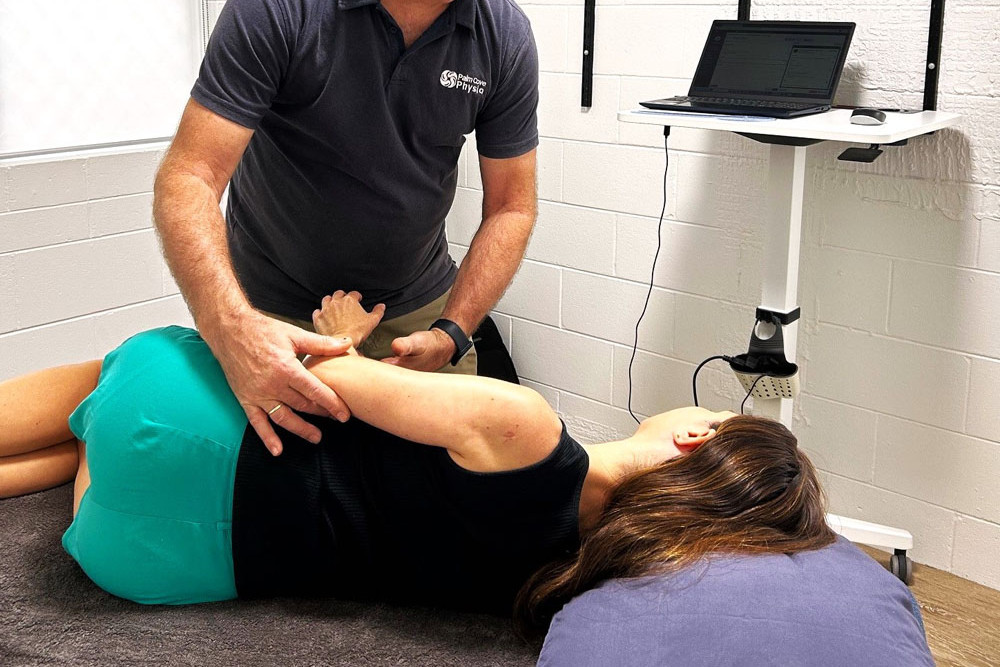General News
15 December, 2024
Shoulder pain can be fixed
SHOULDER pain is a common issue that affects people of all ages and lifestyles. Whether caused by an injury, overuse, posture or the ‘wear and tear of life’, it can significantly impact your daily life.

But Peter van Gaalen of Palm Cove Physio said fortunately, physiotherapy offered a range of effective treatments to help manage and alleviate this discomfort.
Common causes of shoulder pain
Rotator cuff injuries: These injuries are some of the most common causes of shoulder pain. They can result from repetitive movements, heavy lifting or sudden trauma and may actually involve tearing of the rotator cuff tendons.
Frozen shoulder (adhesive capsulitis): This condition leads to stiffness and pain in the shoulder joint, often without an obvious cause. It typically develops gradually and can last for months or take years to run its’ course.
Tendinitis and bursitis: Inflammation of the shoulder tendons or the bursa, usually due to repetitive stress or overuse, can cause significant pain, weakness and limit your range of motion.
Arthritis: Osteoarthritis and rheumatoid arthritis can affect the shoulder, leading to chronic pain and stiffness.
“Physiotherapy is a holistic approach to treating shoulder pain that focuses on restoring function, improving mobility and strength and reducing pain,” said Mr van Gaalen.
It can help by
Personalised exercise programs: A physiotherapist will design a tailored exercise program to strengthen the muscles around your shoulder joint. These exercises help stabilise the joint, improve flexibility and prevent further injury.
Manual therapy: Techniques such as massage, joint mobilisation, and myofascial release can reduce muscle tension and improve blood flow, which aids in healing.
Posture correction: Poor posture is a common contributor to shoulder pain. Physiotherapists can assess your posture and provide guidance on how to correct it, reducing strain on your shoulder.
Pain management techniques: Physiotherapists may use modalities such as ultrasound, heat therapy, or electrical stimulation to manage pain and inflammation, promoting faster recovery.
Education and advice: Understanding your condition and knowing how to manage it is crucial. Your physiotherapist will educate you on ergonomic adjustments, activity modifications, and strategies to avoid future injuries.
“If you experience persistent shoulder pain that doesn’t improve with rest, or if the pain is severe and limits your daily activities, it’s essential to seek professional help,” Mr van Gaalen said.
“Early intervention by a physiotherapist can prevent the condition from worsening and promote a quicker recovery,” he said.
“By following these guidelines and seeking appropriate care, you can effectively manage shoulder pain and return to your normal activities with confidence. “Remember, taking proactive steps today can help you avoid more significant issues in the future.”


